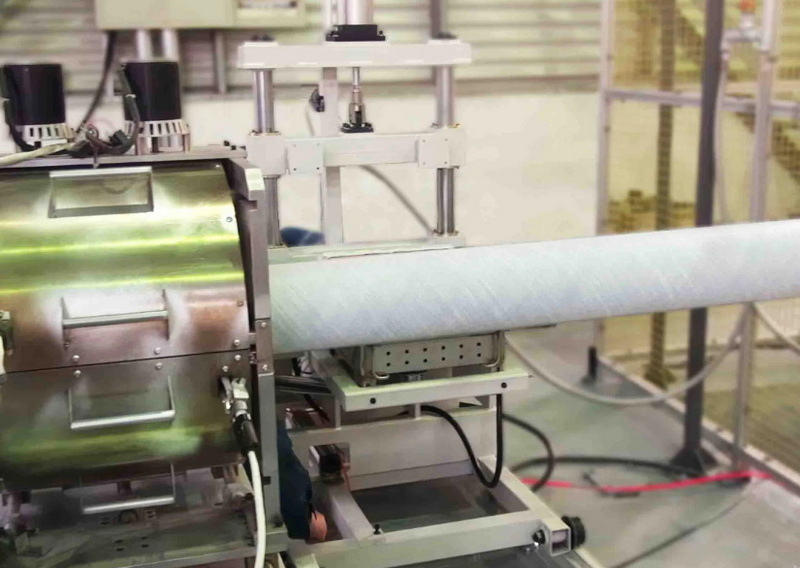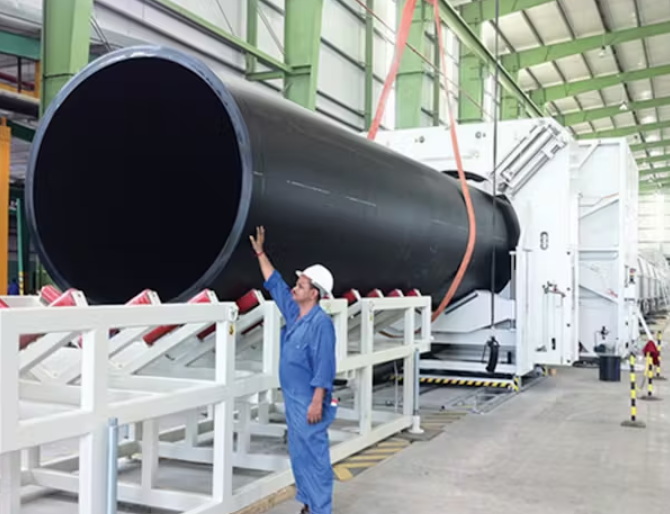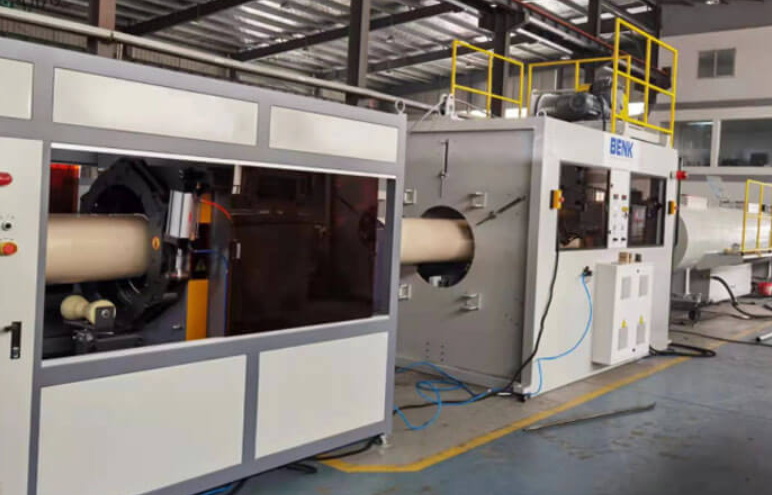Content Menu
● Overview of the German Aluminum Extrusion Industry
● Key Aluminum Extrusion Line Manufacturers and Suppliers in Germany
● Technological Innovations and Sustainability
● The Aluminum Extrusion Process: Explained
● Industry Applications and Market Trends
● Expanding Market Trends and Future Outlook
● Conclusion
● Frequently Asked Questions
>> 1. What are the main advantages of sourcing aluminum extrusion lines from German manufacturers?
>> 2. How do German extrusion lines contribute to energy efficiency and sustainability?
>> 3. What types of profiles and products can be manufactured using German extrusion lines?
>> 4. Are German aluminum extrusion suppliers capable of providing OEM and custom solutions?
>> 5. What certifications and quality standards do leading German aluminum extrusion suppliers adhere to?
Germany stands at the forefront of the global aluminum extrusion industry, renowned for its advanced technology, stringent quality standards, and commitment to sustainability. As demand for lightweight, durable, and versatile aluminum products surges across sectors such as automotive, construction, aerospace, and renewable energy, the role of German aluminum extrusion line manufacturers and suppliers becomes increasingly pivotal. This article provides an in-depth exploration of the leading companies, their technological innovations, and the evolving market landscape in Germany, serving as a comprehensive guide for international OEMs, brand owners, wholesalers, and manufacturers seeking reliable partners in the aluminum extrusion sector.

Overview of the German Aluminum Extrusion Industry
Germany's aluminum extrusion sector is characterized by:
- Robust regulatory frameworks ensuring high quality and environmental sustainability.
- Intense competition among a diverse range of manufacturers, from specialized SMEs to large multinational corporations.
- Strong focus on innovation, particularly in energy efficiency, process automation, and recycling.
- Strategic geographic position within Europe, facilitating access to a broad customer base and efficient logistics.
The industry is driven by the rising demand for sustainable, lightweight materials in automotive, aerospace, construction, and energy applications. German manufacturers are recognized for their advanced production capabilities, adherence to EU standards, and continuous investment in R&D and eco-friendly processes.
Key Aluminum Extrusion Line Manufacturers and Suppliers in Germany
Below is a detailed overview and comparison of leading aluminum extrusion line manufacturers and suppliers in Germany, highlighting their specialties and contributions to the industry.
| Company Name | Location | Employees | Key Strengths & Offerings |
| SMS Group GmbH | Düsseldorf | 14,000+ | Leading global supplier of extrusion presses and complete lines, known for energy efficiency and innovation. |
| Hydro Extrusion Rackwitz | Rackwitz | 250 | Operates three extrusion lines, offers anodizing, mechanical treatment, and fast delivery; ASI & EPD certified. |
| apt Group | Monheim am Rhein | 1,000+ | Major European player with high-capacity, energy-efficient press lines for large and complex profiles. |
| STEP-G | Bitterfeld, Bonn, etc. | 1,000+ | Eight locations, 11 extrusion lines, expertise in large and complex profiles, Europe's largest extrusion press. |
| Alu Menziken | Various | 500+ | Modern extrusion lines for demanding profiles, advanced alloys, and custom solutions for automotive/aerospace. |
| Constellium | Multiple, incl. Germany | 10,000+ | Global leader in advanced, specialized extrusions and downstream services for automotive, transport, industry. |
| ISOPROFIL | Wuppertal | 11-50 | Specialized in custom extruded aluminum profiles for high-demand applications. |
| AP AluProfil GmbH | Winterberg | 1-10 | Full-range aluminum profiles, custom solutions, flexible production. |
| WMH GROUP GERMANY | Essen | 51-100 | High-quality aluminum products for machine building and aerospace. |
| Fetra Aluminium Profiltechnik GmbH | Langenfeld | 1-10 | High-quality, durable, and versatile aluminum profiles, custom finishes. |
| Cansan Aluminium Profil GmbH | Frankfurt | - | Focus on innovation, sustainability, and CO₂ reduction in extrusion. |
| Mack Alu-Systeme GmbH | Klettgau | - | Expertise in long, large-volume profiles and complex construction components. |
| Alimex GmbH | Willich | 101-250 | Precision aluminum cast plates, unique casting processes. |
Notable International Players with German Operations:
- Constellium: Renowned for advanced, highly specialized aluminum extrusions, with major production facilities in Germany and across Europe.
- Arconic: Significant presence in Europe, offering innovative extrusion technologies for building, transport, and industrial applications.
Technological Innovations and Sustainability
German aluminum extrusion line manufacturers are at the cutting edge of technology, focusing on:
- Energy Efficiency: SMS Group's HybrEx® presses reduce energy consumption by up to 55% and increase productivity by up to 20% by utilizing hybrid drive systems with electric servomotors.
- Automation and Process Control: Modern lines feature advanced automation for billet handling, die change, and profile cutting, ensuring high precision and consistent quality.
- Sustainability: Many suppliers, such as Hydro and Cansan Aluminium, are certified under the Aluminium Stewardship Initiative (ASI) and invest in recycling and eco-friendly production methods.
- Large-Scale and Complex Profiles: Companies like STEP-G and apt Group operate some of the largest extrusion presses in Europe, enabling the production of extra-large and highly complex profiles for specialized applications such as railway, automotive, and aerospace.
The Aluminum Extrusion Process: Explained
The aluminum extrusion process is a sophisticated method of shaping aluminum by forcing it through a die to create profiles with specific cross-sectional shapes. Here's a step-by-step overview:
1. Die Preparation: The die, which determines the shape of the profile, is preheated to prevent sticking.
2. Billet Heating: Aluminum billets are heated to around 900°F (480°C) to soften them while retaining their solid form.
3. Extrusion: The heated billet is loaded into the press. Hydraulic or hybrid rams apply immense pressure, forcing the aluminum through the die opening, where it emerges as a continuous profile.
4. Cooling: The extruded profile is rapidly cooled, usually by air or water quenching, to maintain its mechanical properties.
5. Cutting and Finishing: The profile is cut to length, aged (either naturally or in ovens), and may undergo surface treatments such as anodizing or painting.
6. Fabrication: Additional machining, bending, welding, or assembly may be performed based on customer requirements.
> "The actual extrusion process begins when the press ram starts applying pressure to the billet within a container. Hydraulic presses can exert from 100 to 15,000 tons of pressure; the pressure capacity of a specific press determines how large an extrusion it can produce."

Industry Applications and Market Trends
Aluminum extrusions produced in Germany are integral to a variety of sectors:
- Automotive: Lightweight, crash-resistant profiles for structural and decorative components.
- Aerospace: High-strength, precision profiles for aircraft structures and interiors.
- Construction: Window frames, curtain walls, roofing, and façade systems.
- Railway: Large, custom profiles for carriages and infrastructure.
- Industrial Machinery: Machine frames, conveyors, and automation systems.
Market Trends:
- Sustainability: Increasing demand for recycled and low-carbon aluminum products.
- Customization: Growing need for tailored profiles and rapid prototyping.
- Digitalization: Integration of Industry 4.0 technologies for smarter, more efficient production.
Expanding Market Trends and Future Outlook
The aluminum extrusion industry in Germany is poised for significant growth driven by several emerging trends. One of the most prominent is the increasing emphasis on lightweight construction, particularly in the automotive and aerospace sectors, where reducing vehicle weight directly contributes to fuel efficiency and lower emissions. German manufacturers are investing heavily in developing new alloys and extrusion techniques that enhance strength while minimizing weight.
Another key trend is the digital transformation of manufacturing processes. Industry 4.0 technologies, including IoT sensors, AI-driven process optimization, and real-time quality monitoring, are being integrated into extrusion lines to improve efficiency, reduce waste, and enable predictive maintenance. This digitalization not only enhances productivity but also supports sustainability goals by optimizing energy use and material consumption.
Sustainability remains a core focus, with manufacturers adopting circular economy principles. This includes increasing the use of recycled aluminum, improving recycling processes, and reducing the carbon footprint of extrusion operations. German companies are also exploring renewable energy sources to power their facilities, further aligning with global climate targets.
The demand for customized and complex profiles continues to grow, driven by diverse applications in construction, transportation, and industrial machinery. German extrusion lines are equipped to handle these demands with flexible production capabilities and advanced automation, allowing for rapid prototyping and small batch production alongside large-scale manufacturing.
Looking ahead, the industry is expected to benefit from ongoing research collaborations between manufacturers, research institutions, and government bodies. These partnerships aim to develop next-generation materials and extrusion technologies that will maintain Germany's competitive edge in the global market.
In summary, the German aluminum extrusion industry is not only maintaining its strong position but is also innovating and adapting to future challenges and opportunities, ensuring its relevance and leadership in the years to come.
Conclusion
German aluminum extrusion line manufacturers and suppliers represent a blend of tradition, innovation, and sustainability. Their commitment to quality, energy efficiency, and customization positions them as leaders in the global aluminum extrusion market. For international OEMs, wholesalers, and manufacturers, partnering with these German companies offers access to cutting-edge technology and reliable production capabilities that meet the evolving demands of various industries.

Frequently Asked Questions
1. What are the main advantages of sourcing aluminum extrusion lines from German manufacturers?
German manufacturers offer advanced technology, high-quality standards, and a strong focus on sustainability. Their experience with complex profiles and large-scale production makes them ideal partners for demanding applications in automotive, aerospace, and construction.
2. How do German extrusion lines contribute to energy efficiency and sustainability?
Innovations such as hybrid drive systems (e.g., SMS Group's HybrEx®) significantly reduce energy consumption. Many suppliers are ASI certified and invest in recycling and low-carbon production methods.
3. What types of profiles and products can be manufactured using German extrusion lines?
German extrusion lines can produce a vast range of profiles, from small, precise components to extra-large, complex shapes for railway, automotive, and industrial use. Custom alloys and surface finishes are also available.
4. Are German aluminum extrusion suppliers capable of providing OEM and custom solutions?
Yes, many German suppliers specialize in OEM services, supporting clients from design to serial production, and offering tailored solutions for unique requirements.
5. What certifications and quality standards do leading German aluminum extrusion suppliers adhere to?
Most leading suppliers are certified to ISO 9001, ISO 14001, and ASI standards, ensuring quality, environmental responsibility, and traceability throughout the supply chain.






















